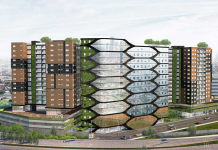
Cebu has the nickname “Queen City of the South” for obvious reason. It’s one of the most prosperous localities in the country with its glowing economy. Add to the charm of Cebu is that it hasn’t lost its provincial charm with its beautiful beaches and natural resources. Cebu is considered an investment hub as developed as Metro Manila. Below are some of the reasons why you should be excited about investing in Cebu.
Accessibility
The Mactan-Cebu International Airport is currently under major makeover. When it’s done, Cebu’s very own airport will have more lavish amenities that will impress future tourists and investors. Having its own airport means that Cebu is very accessible to people both local and foreign. It is also a famous trans-shipment port of imports and exports.
Great labor force
Cebu is home to hundreds of tech and BPO related companies. It has one of the most productive labor forces in the country. It also ranked 8th at the Top 100 Outsourcing Destinations in the World. Finding a job or getting employees in Cebu will never be a problem.
Increasing tourism
Cebu is a regular magnet for tourists. Foreign and domestic arrivals are estimated to be 1.6 million per year. Aside from the enjoyable climate, Cebu is known for gorgeous town tours, diving destinations, canyoneering spots, and lovely beaches. Because of this, rental properties both luxurious and cheap are all over the city.
Lively lifestyle
Cebu is far from the quaint locale that it used to be. Today, the Queen City of the South is bustling with cosmopolitan life. Malls and entertainment centers are everywhere. There are also bars, clubs, and restaurants that keep the night life exciting and vibrant.
Secured everyday
The city prides itself for being one of the most peaceful areas in the Philippines. Crime incidents in Cebu remain lower than 1.1% on an average.
Increase in local migration
The domestic migration in Cebu just keeps on getting higher and higher. Migration brought 5.2% increase in population annually. This means that the need for residential properties are also increasing. According to a study, 60% of the local population prefer renting rather than buying a property.




















